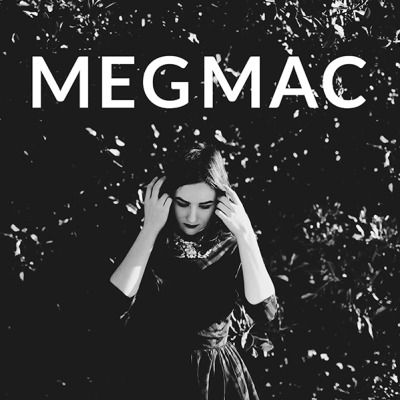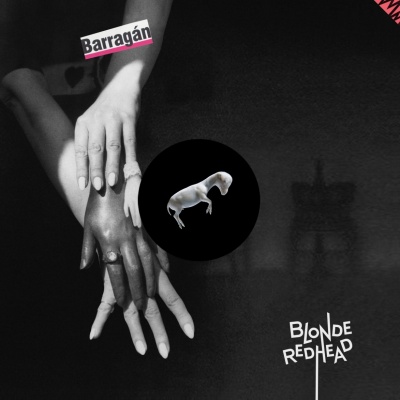Mike Hadreas is a thin, waifish man with a voice to match. It is a gentle, quavering instrument, waterlogged with tears. On his first two records under the name Perfume Genius, often with little more than two or three piano chords, that voice told heartbreaking stories, eloquent in their simplicity and resonating with pain and loss. Now, on his third record, Too Bright, Hadreas has capitalised on the growth he showed on 2012's Put Your Back N 2 It and has delivered his most powerful, consistent work yet. With the production assistance of Adrian Utley, the mastermind behind trip-hop legends Portishead, Hadreas has a created something empowering, where even the intrinsic qualities of his one-of-a-kind voice become more affecting and powerful.
The adventurousness of Too Bright, on which Hadreas synthesizes, punk, electronica, noise, ambient and pop is key to its success. The album (for obvious reasons) recalls Portishead's incredible 2008 record Third, as well as featuring remnants of one-of-a-kind synth punks Suicide. Despite these reference points, however, the record is distinctly Perfume Genius. No other artist has quite the same tenderness and rawness as he does. From the record's quiet beginnings, through its busy, noisy middle section and to the soothing balm of its closing pair of beauties, Too Bright is like witnessing in miniature its author discovering his own identity, how that identity relates to the world around him, and realising the power he possesses to control it.
The first song previewed from the album was "Queen," a song that find Hadreas taking control of the perverse power he has as a gay man in a public space. He paints himself as a powerful villain, a fearsome supernatural being. "Don't you know your queen?" He sings, "Ripped, heaving, flowers bloom at my feet." It is the same voice from before, but now it floats over a low, grinding bassline and metallic keyboards that are befitting of the song's regal title. In taking command of his public perception, Hadreas is pointing out the fragility of conventional notions of masculinity with a bitter laugh. Elsewhere on the record, though, he does not let his sexuality define him, and many of his most affecting songs grapple with the simple human desire to be loved.
Hadreas is very present on this album not just as a singer-songwriter, but as a performer. On the opening track "I Decline," he sings the song's title phrase and his voice falls away, melting into a sigh. It's a moment that reads as either resigned or callous, speaking volumes in a single exhalation. On this record, he pushes his voice to its limits, and you can hear the way he has improved and grown since his first releases. On his earliest records, there was a sense of detachment - like half-remembered trauma - in the way he sang his sometimes matter-of-fact lyrics, but now his words are presented with unswerving conviction, here and now, in the present tense. This growth also has visual representation in the steely femininity of the cover art and the two music videos released for "Queen" and "Grid."
Several songs seem to bear the influence of classic rock 'n' roll, sounding not unlike the weird, empty, and very lonely vibe of Elvis Presley's version of "Blue Moon" from his classic first album. The first of these numbers is "Fool," quite possibly the best track here, which features gauzy synthesizers, upright bass, low, lush saxophone, a gently swaying beat and doo-wop backing vocals. "Fool," like much of the album, feels like it is constantly on the verge of collapse, veering off at several points into ambient passages of wailing vocals. Later on, the pulsing rockabilly beat of "Grid" is interrupted by inhuman screams and backing chants from what sounds like a choir of possessed children. On "My Body" (the song that sounds most like Portishead) Hadreas sings the title in a low, slurred tenor, as if in imitation of The King, creating sense of unapologetic carnality that creates alluring tension with the song's grubby, dank atmosphere.
There are also shades of the old Perfume Genius style here, particularly "I Decline," "No Good," and "Don't Let Them In" all of which are piano ballads, and "I'm a Mother," a dark ambient piece featuring pitch-shifted vocals. These songs tend to have more complex structures and melodies than in the past, though, such as the gorgeously tinkling keys on "No Good," and the waltz-like rolled chords that appear halfway through "Don't Let Them In." Utley's production brings a real sense of depth to the songs, where before they would have been coated in heavy reverb that made each sound blur together. There is still an appealing roughness to the sound, but there is a new sense of light and space that is perfectly in keeping with the new strength contained in this batch of strident, uncompromising songs.
Too Bright is not just an excellent record - it also feels like the first giant step toward becoming an icon. Perfume Genius is an important project because in a time when homosexuality is a key social issue it is a reminder that the personal is always political. Perfume Genius is a queer voice that is angry without being militant, and sad without being resigned. It little more than half an hour, the record covers a huge amount of ground, but does not seem messy or unfocused. It is a laser-guided attack, a sharply honed missive by an artist at the top of his game. It is empowering, frightening and sensual, and then as Hadreas sings "I don't need your love / I don't need you to understand / I need you to listen" on the record's final song, it is deeply, deeply moving as well.
Matador Records.



